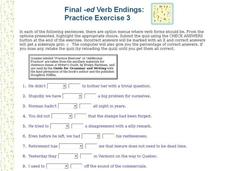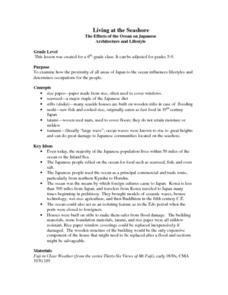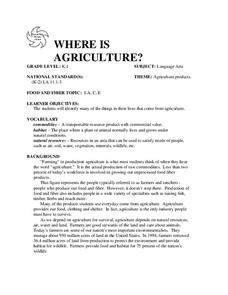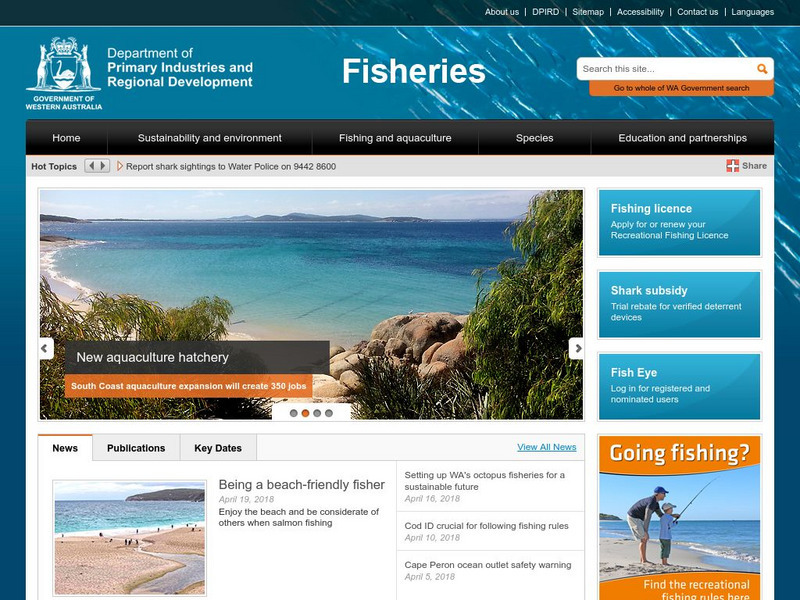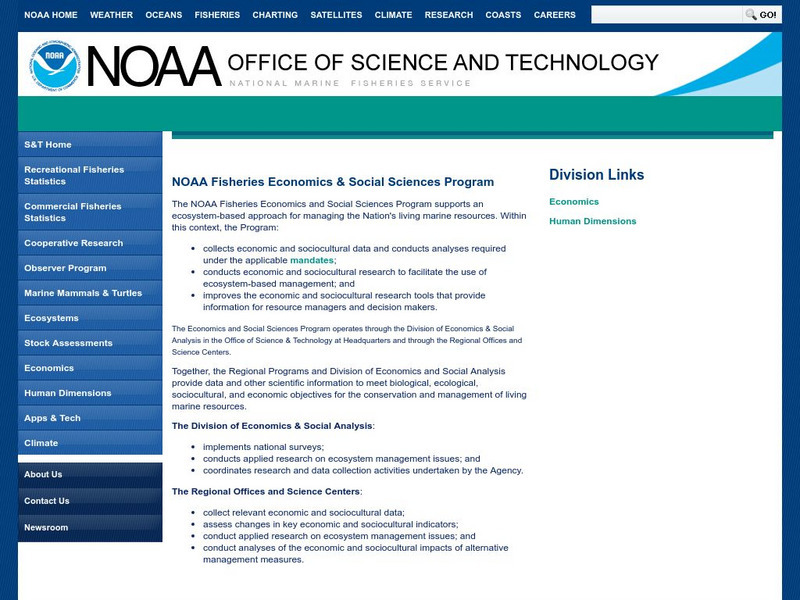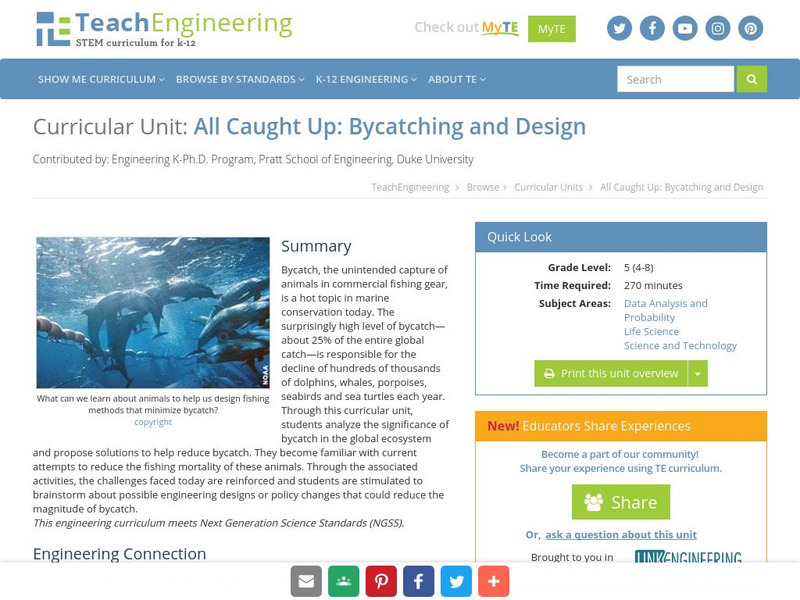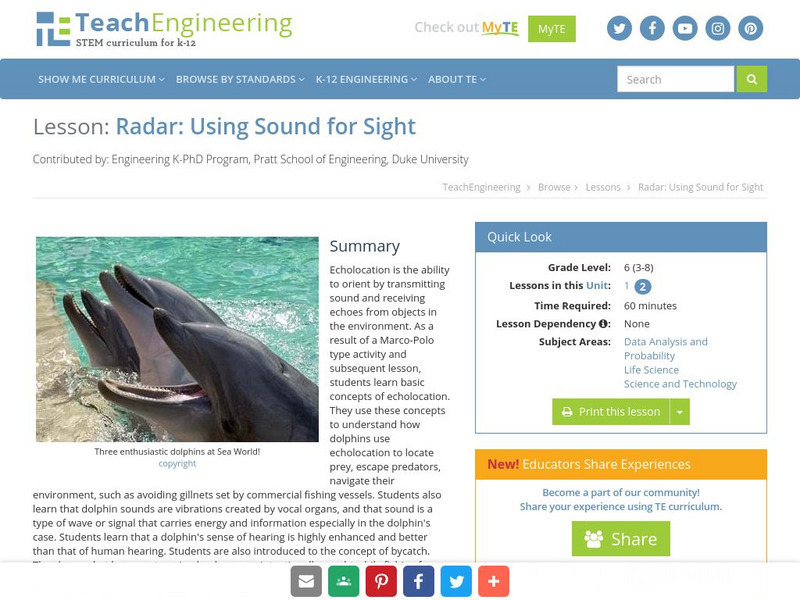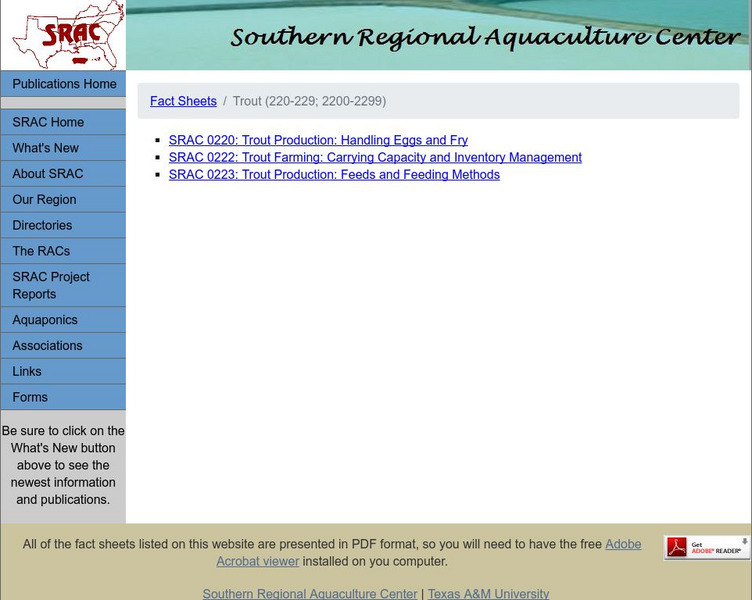Curated OER
Camouflage, Protection, & Adaptations—Who am I?
Students explore ocean animal adaptations. In this animal adaptations lesson plan, students examine how different ocean animals use adaptations other than camouflage to protect themselves.
Curated OER
Final -ed Verb Endings: Practice Exercise 3
In this verbs activity, students complete a 25 question multiple choice on-line interactive practice exercise about verbs ending in "-ed". Students choose the best verb for the sentence from two choices.
Curated OER
Images of Katrina
Students use maps and online data to find specific geographic areas. In hurricane Katrina lesson students use aerial photographic imagery to see some impacts of hurricane Katrina.
Curated OER
Living at the Seashore
Students examine how the proximity of all areas of Japan to the ocean influences lifestyles and determines occupations for the people. This lesson includes lesson extensions and a concept list.
Curated OER
SLAVERY IN ARKANSAS, THE LIFE OF A SLAVE
Learners participate in a variety of activities to demonstrate an understanding of mid 1800 role of slaves. Vocabulary, writing and math are integrated into the lesson.
Curated OER
WHERE IS AGRICULTURE?
The students will identify many of the things in their lives that come from agriculture.See if someone involved in production agriculture will "adopt" your class. Students can correspond with the farmer or rancher's family. This will...
US Fish and Wildlife Service
Us Fish and Wildlife Service: Fishing
This site from the US Fish and Wildlife Service provides information and multiple links related to recreational and commercial fishing.
NOAA
Noaa: National Marine Fisheries Headquarters
This home page provides links to fisheries organizations, research and regulations.
Other
Government of West. Australia: Fisheries
This home page from the Government of Western Australia provides fishing regulations and related information as well as links to recreational and commercial fishing, research and market development in West Australia.
NOAA
Noaa: Annual Commercial Landings Statistics
The NOAA Fisheries offers this interactive statistics page to find out about the catches and value of various species of fish and crustaceans taken by commercial fisheries since 1950.
NOAA
Noaa: Fisheries Economics & Social Sciences Program
This home page provides information about fishing economics and includes links to recreational and commercial fishing/economics sites.
TeachEngineering
Teach Engineering: All Caught Up: Bycatching and Design
Bycatch, the unintended capture of animals in commercial fishing gear, is one of the hottest topics in marine conservation today. About 25% of the entire global catch is bycatch. This surprisingly high level of bycatch is responsible for...
TeachEngineering
Teach Engineering: All Caught Up
Commercial fishing nets often trap unprofitable animals in the process of catching their target species. In the following activity, students will experience the difficulty that fishermen experience while trying to isolate a target...
Virtual Museum of Canada
Virtual Museum of Canada: Community Stories: Steveston Recollections, the History of a Village
Steveston,B.C., a rich farming and fishing community at the mouth of the Fraser River, is profiled. Follow the history of the town known as the 'salmon capital of the world.'
Curated OER
Etc: Maps Etc: Distribution of Fish in North America, 1910
A map from1910 of North America showing the distribution of primary commercial fish in the region, including oysters, clams, sponges, turtles, shrimp, lobster, whales and seals. The map shows marine species as well the freshwater salmon...
TeachEngineering
Teach Engineering: Sound for Sight
Echolocation is the ability to orient by transmitting sound and receiving echoes from objects in the environment. As a result of a Marco-Polo type activity and subsequent lesson, students learn basic concepts of echolocation. They use...
Texas A&M University
Srac: Fact Sheets: Trout
The carrying capacity of a trout production unit depends on fish size and water quality factors such as oxygen content, temperature, water flow and volume. Most commercial trout farms in the South use rectangular concrete tanks in...
Curated OER
Etc: Maps Etc: Commercial Map: United States, Canada, Mexico, 1904
North American commercial activities including: major agricultural crops (barley, corn, wheat, coffee, tobacco, et cetera) and secondary agricultural crops (oranges, lumber, wine); primary mining extraction (coal, gold, silver,...
Canadian Museum of Nature
Canadian Museum of Nature: Great Auk
A profile of the extinct Great Auk is provided here by the Canadian Museum of Nature.
Curated OER
Alert Bay Fishermen Storing Their Nets
This fascinating site looks at what it would have been like to have been a fisherman during the early and mid half of the 20th century.



